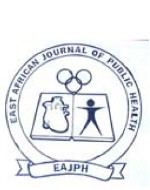
|
East African Journal of Public Health
East African Public Health Association
ISSN: 0856-8960
Vol. 5, No. 1, 2008, pp. 17-21
|
 Bioline Code: lp08005
Bioline Code: lp08005
Full paper language: English
Document type: Research Article
Document available free of charge
|
|
|
East African Journal of Public Health, Vol. 5, No. 1, 2008, pp. 17-21
| en |
Dar Es Salaam Perinatal Care Study: Needs Assessment for Quality of Care
Nyamtema, Angelo S.; Urassa, David P.; Massawe, Siriel; Massawe, Augustine; Mtasiwa, D.; Lindmark, G. & van Roosmalen, J.
Abstract
Objective: Poor obstetric care in low income countries has been attributed to a wide range of factors. We conducted a perinatal care needs assessment in Dar es Salaam health institutions to assess the factors underlying the present poor perinatal outcome.
Methods:
A cross sectional study was conducted in 2005 in all four public hospitals and all five public health centres purposively selected, and in six dispensaries selected using simple random sampling method. WHO Safe Motherhood needs assessment instruments were used to assess structural, systemic and process needs for quality perinatal care. Health care providers, administrators and clients were interviewed about perinatal care services in their respective health institutions.
Results:
The majority (72%) of all deliveries in Dar es Salaam took place in the four available public hospitals. The potential coverage of comprehensive and basic emergency obstetric care(EmOC) services were 360% and 350% of the United Nations minimum recommended health institution categories per 500,000 population respectively. The coverage for health centres and dispensaries based on Tanzanian standards were 20% and 24% respectively. Two of the hospitals did not provide theatre and blood transfusion services for 24 hours per day. Two public health centres did not provide delivery services at all and 83% of the dispensaries had poorly established obstetric services. There was only one public neonatal unit that served as a referral institution for all sick newborns delivered in public health institutions in the region.
Conclusion:
This paper reveals the state of inadequate infrastructure, equipments and supplies for perinatal care in Dar es Salaam public health institutions. A major investment is needed to establish new public infrastructure for maternal and neonatal care, upgrade and optimize use of the existing ones, and improve supply of essential material resources in order to achieve the Millennium Development Goals set for maternal and child survivals by 2015.
Keywords
Perinatal care, quality of care, needs assessment, Dar es Salaam, emergency obstetric care
|
| |
© Copyright 2008 - East African Journal of Public Heath
|
|
